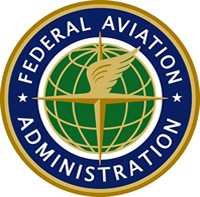Blakey Announces Change In DC Speech
 ANN REALTIME REPORTING 01.30.07 1515
EST: As promised, on Tuesday FAA Administrator Marion
Blakey announced the FAA will propose to raise the mandatory
retirement age for US commercial pilots from 60 to 65. Speaking
before pilots and aviation experts at the National Press Club,
Blakey said that the agency plans to propose adopting the new
International Civil Aviation Organization (ICAO) standard that
allows one pilot to be up to age 65 provided the other pilot is
under age 60.
ANN REALTIME REPORTING 01.30.07 1515
EST: As promised, on Tuesday FAA Administrator Marion
Blakey announced the FAA will propose to raise the mandatory
retirement age for US commercial pilots from 60 to 65. Speaking
before pilots and aviation experts at the National Press Club,
Blakey said that the agency plans to propose adopting the new
International Civil Aviation Organization (ICAO) standard that
allows one pilot to be up to age 65 provided the other pilot is
under age 60.
The FAA plans to issue a formal Notice of Proposed Rulemaking
(NPRM) later this year, and will publish a final rule after careful
consideration of all public comments, as required by law.
"A pilot’s experience counts -- it's an added margin of
safety," said Blakey. "Foreign airlines have demonstrated that
experienced pilots in good health can fly beyond age 60 without
compromising safety."
As Aero-News reported, on
September 27, 2006, Administrator Blakey established a group of
airline, labor and medical experts to recommend whether the United
States should adopt the new ICAO standard and determine what
actions would be necessary if the FAA were to change its rule. The
Age 60 Aviation Rulemaking Committee (ARC) did not reach a
consensus recommendation but did provide detailed insight and
analysis that will be helpful as the FAA develops a rule.
Since 1959, the FAA has required that all US pilots stop flying
commercial airplanes at age 60. In November 2006, ICAO, the United
Nations’ aviation organization, increased the upper age limit
for pilots to age 65, provided that the other pilot is under age
60.
Original Report
 Is the FAA relenting on its
"Age 60" rule? There are indications the agency will soon seek new
regulations allowing commercial pilots to remain in the cockpit
until the age of 65, as long as the second pilot onboard is younger
than 60.
Is the FAA relenting on its
"Age 60" rule? There are indications the agency will soon seek new
regulations allowing commercial pilots to remain in the cockpit
until the age of 65, as long as the second pilot onboard is younger
than 60.
CBS News reports FAA Administrator Marion Blakey will make an
announcement Tuesday, in her speech at the National Press Club in
Washington, DC.
If enacted, the new regulations would mirror similar standards
adapted by the International Civil Aviation Organization last
November.
As Aero-News reported, a
committee of airline and industry representatives, convened at
Blakey's request to study the issue, disbanded in December without
consensus on the issue. Each side instead presented its respective
arguments.
In an odd bit of circumstance, the "Age 60" rule -- which forced
pilots flying for commercial passenger airlines to retire at 60
years of age -- was enacted in 1960. While it was somewhat
controversial from the start, pilots initially had little reason to
complain; after all, older pilots could look forward to healthy
pensions upon retirement, while younger pilots were eager to fill
the seats vacated by their predecessors. Capping the maximum age
for the highest-paid senior-level pilots also allowed airlines to
keep their costs in check, at least in theory.
Alas, that was then... and this is a very harsh now. In the face
of declining retirement benefits, older pilots have fought to
remain in the cockpit -- and, thus, earning a paycheck -- as long
as they can. That phenomenon hasn't been limited to the US,
either... one reason ICAO adapted the easier standards last
year.
 Of course, one thing
hasn't changed: younger pilots are still hungry for promotion into
the left seat, and a reversal of Age 60 would create additional
roadblocks for them. Pilots still waiting to come off furlough
would also be hit.
Of course, one thing
hasn't changed: younger pilots are still hungry for promotion into
the left seat, and a reversal of Age 60 would create additional
roadblocks for them. Pilots still waiting to come off furlough
would also be hit.
The FAA has stated for years it was concerned older pilots may
be more prone to health issues... a position several medical
experts have denounced, due to the lack of scientific evidence to
back it up.
Since the ICAO standards went into effect, nearly all pilots
flying for foreign airlines -- except airlines in Colombia, France,
and Pakistan -- have been allowed to keep their jobs past the age
of 60.
That has presented something of a Catch-22 situation for the
United States... as it was forced to accept the ICAO standard for
pilots at the controls of foreign airliners flying into the US,
even as it adhered to the Age 60 rule for pilots under the agency's
jurisdiction.
 Airbus Racer Helicopter Demonstrator First Flight Part of Clean Sky 2 Initiative
Airbus Racer Helicopter Demonstrator First Flight Part of Clean Sky 2 Initiative Diamond's Electric DA40 Finds Fans at Dübendorf
Diamond's Electric DA40 Finds Fans at Dübendorf ANN's Daily Aero-Term (04.23.24): Line Up And Wait (LUAW)
ANN's Daily Aero-Term (04.23.24): Line Up And Wait (LUAW) NTSB Final Report: Extra Flugzeugbau GMBH EA300/L
NTSB Final Report: Extra Flugzeugbau GMBH EA300/L Classic Aero-TV: 'Never Give Up' - Advice From Two of FedEx's Female Captains
Classic Aero-TV: 'Never Give Up' - Advice From Two of FedEx's Female Captains





